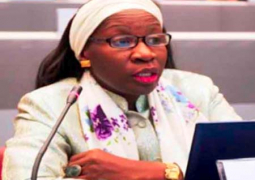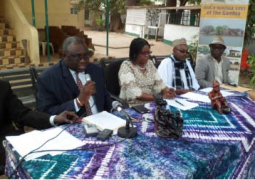The African Capacity Building Foundation, ACBF, and the Republic of the
The
The signing of the agreement reiterates the commitment of African nations to ACBF, and signifies the political commitment of African governments to capacity development in
ACBF’s presence in The Gambia began in 2002 with the approval of a USD850,000 grant for the implementation of the
In 2008, ACBF approved a four-year USD1million grant to TANGO for the non-state actors support project with the objective of strengthening the capacity of non-governmental organizations and non-state actors to engage and dialogue in the public policy process.
As The Gambia continues to forge ahead in its drive to meet the Millennium Development Goals, MDGs, capacity development has been highlighted as one of the major constraints in attaining the goals.
In its release, ACBF said: “According to the UNDP, the challenges faced by The Gambia in meeting a number of the MDGs reflect the absence of an integrated planning framework that can effectively monitor national and local progress. The lack of such a framework is compounded by inadequate institutional capacity and resource constraints,” it said.
Similarly, the Gambia Second Poverty Reduction and Strategy Paper 2007-2011 states that a major constraint in the implementation of the country’s PRSP1 was a human resource scarcity.
The high attrition rate and turnover of staff in the civil service led to major capacity constraints, and declining absorptive capacities.
Scarce technical and financial resource needed to address the critical implementation bottlenecks, faced in implementation, aggravated the situation.
“ACBF support to TANGO, the
The collaboration was also designed to create a strong partnership between non-state actors to build capacity for better input into public policies. ACBF justification for the support to the project is sustainable poverty reduction, which requires the participation of sectors that have the requisite skill to partake in the design and formulation of public policy programmes, procedures, and regulations.
TANGO identified 5 key capacity constraints of non state actors in The Gambia namely, the limitation of democratic space for participation in policy dialogue, weak capacity for policy analysis, poor access to adequate and timely information, fragmentation and lack of coordination of social forums, and lack of ownership of policies by the non-state actors.
A major outcome for the project after a four year implementation period is the interface between civil society and government in the implementation of policies and development of frameworks.
Speaking ahead of the signing ceremony, ACBF Executive Secretary Dr Frannie Leautier, stated that ACBF will work in partnership with the government to further build the human and institutional capacities of the country.
“As the premier capacity building arm in



